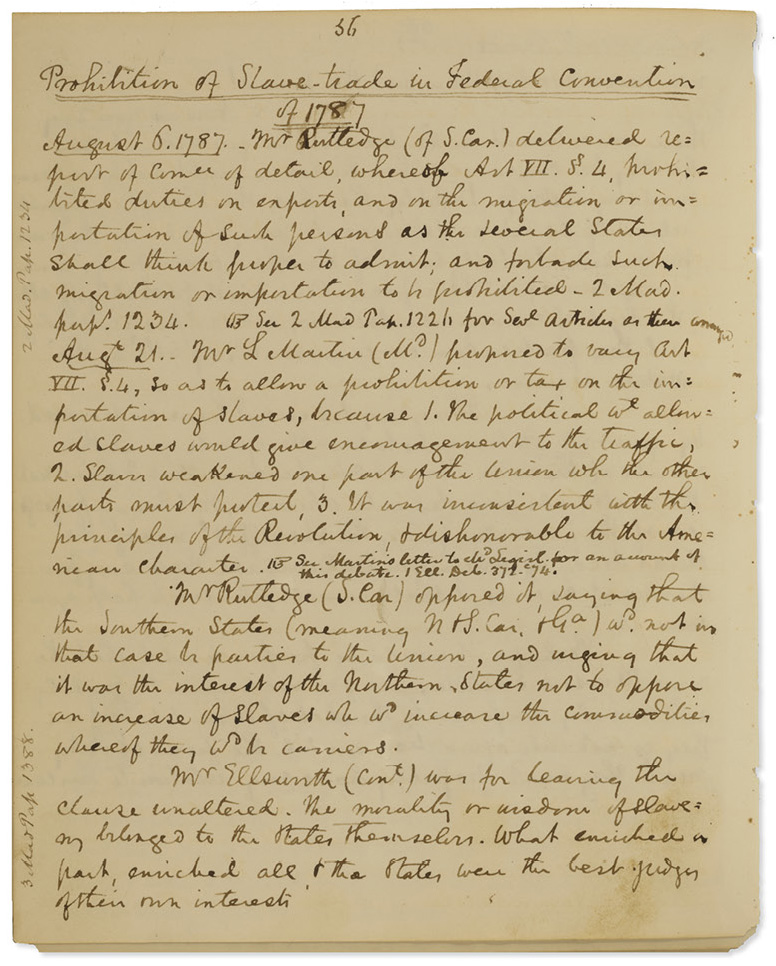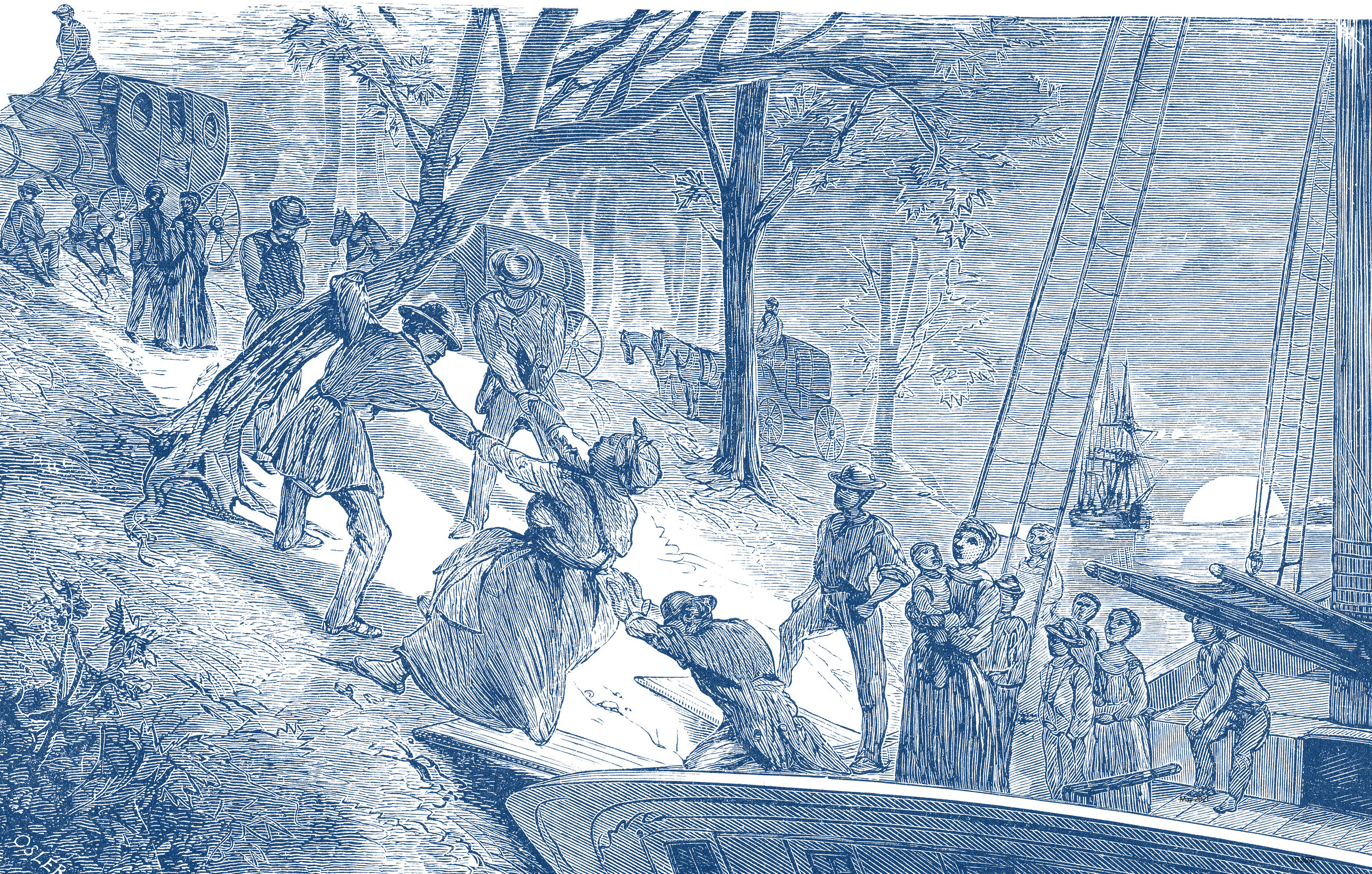Pavilion X Exhibition
John B. Minor, the Civil War and Slavery
Law Professor John B. Minor and his family resided in Pavilion X throughout the Civil War and Reconstruction. From Pavilion X, Minor penned many letters to his cousin Mary Blackford recounting his views on secession and slavery. He also recorded his overall impressions of the war in his commonplace book. Minor’s reminiscences relay his trepidation about the movement of Union soldiers near Grounds and the vulnerability he felt inside the walls of Pavilion X. For enslaved people, like Minor’s servant Henry, approaching Union troops held a different meaning. Henry and many enslaved people in Charlottesville took this opportunity to escape and claim their freedom.
Minor felt strongly that the Civil War would abolish slavery “prematurely” in the South. From his diary, it can be surmised that although he doubted the constitutionality of secession, he eventually came to believe it was necessary to protect the South and its institutions. Student notes from the period indicate that Minor believed slavery was necessary. In the classroom, Minor addressed calls for the complete abolition of slavery, which he attributed to a supposed “jealousy” from the North over the power of the South to legislate slavery on its own. Minor’s Law School teachings provided the legal justifications for slavery, one important tool in solidifying a slave society.

